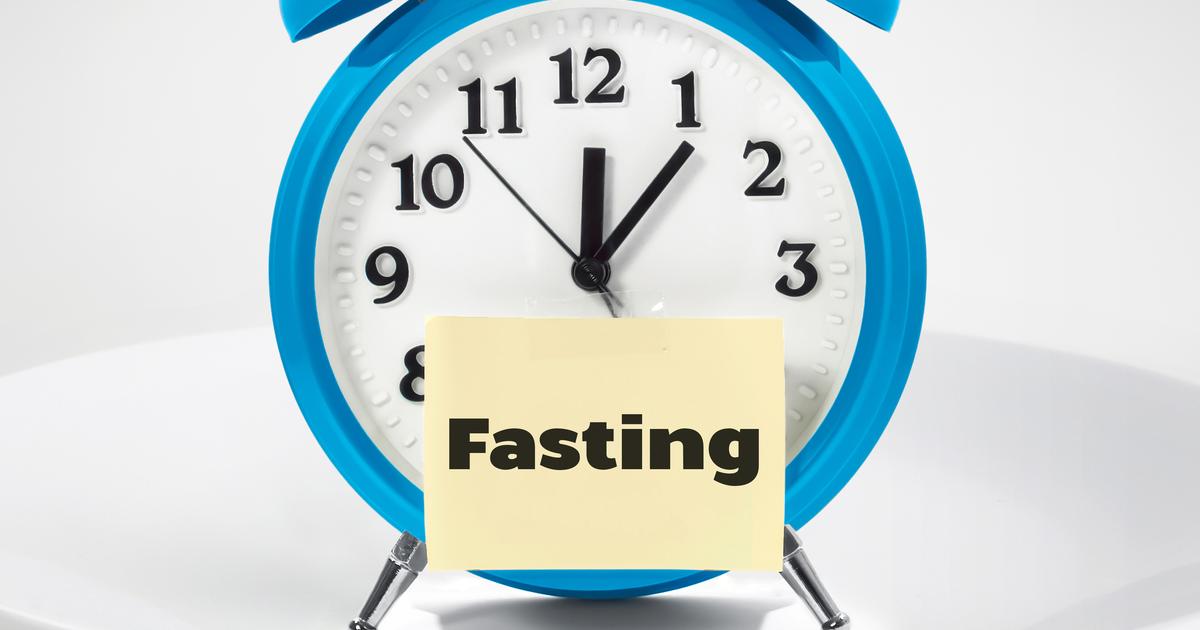Tips For Fasting Safely
Intermittent fasting has been used for centuries for religious reasons. It has become a very popular tool for weight loss in recent years. Followers of this dietary approach enjoy the flexibility of being able to choose when and how to fast. The fact that it only requires calorie restriction on fasting days helps many patients continue with this approach for longer than they would with a traditional diet involving daily restriction. Overall, patients tend to feel less deprived with fasting methods than more conventional plans, and they can still enjoy their favorite foods.
Studies show intermittent fasting is effective for weight loss and an insulin resistance treatment. However, any type of fasting, including clean fasting, can pose risks if done improperly. The fasting guide below outlines some key principles to keep in mind for safe fasting. Patients should, of course, ask their doctor before beginning a fasting regimen, including fasting for weight loss, to ensure they are healthy enough to do so.
Stay Hydrated

Some patients experience fatigue during a fast, and this can be exacerbated by dehydration. Most individuals get twenty to thirty percent of their daily fluid intake from the water naturally contained in the foods they eat. Thus, it is especially important to stay hydrated on fasting days. Patients should aim to drink more fluids on fasting days than they would on non-fasting days. While water is best, herbal tea, black coffee, and calorie-free beverages all count for fluid intake. If participating in a modified fast such as the 5:2 diet, patients may want to include juices or smoothies in their fluid intake for fasting days as well. Ideally, women should consume at least two liters of fluid on fasting days. Men are advised to consume a minimum of three liters.
Patients should drink fluids whenever they feel thirsty, even if they have already consumed the recommended amount of fluid for the day. Keeping track of urine color can be useful in estimating hydration levels. If urine is dark yellow, this suggests that the patient needs to drink more fluids. Pale yellow, nearly clear urine generally indicates the patient is sufficiently hydrated. Staying hydrated can help reduce hunger, and it may also reduce the headaches that sometimes occur during fasts.
Do Not Break A Fast By Feasting

Choosing to break a fast by feasting on large meals is very hard on the body's digestive system. Patients who do this could experience bloating, stomach pain, and fatigue. Additionally, feasting after a fast could hamper weight loss, slowing down the speed at which an individual can lose weight or perhaps preventing them from losing any weight at all. Instead of consuming a large meal after breaking a fast, experts recommend gradually reintroducing food over several hours.
For example, it can help to start by consuming a small quantity of fruit juice or a smoothie. If the individual is feeling well about thirty minutes after they consume this, they can add solid food. It is suggested to eat something bland such as cereal, toast, or mashed potatoes so the stomach is not upset by spicy foods. If patients have only fasted for a few hours and the fast did not involve abstaining from food entirely, it may feel comfortable to eat a small meal of whatever the patient would typically eat for that meal on a regular day. If bloating, stomach pain, or other symptoms develop or worsen after breaking a fast, patients should consult a doctor before trying to fast again.
Stop Fasting if Feeling Sick

In the short term, intermittent fasting may sometimes trigger symptoms such as lightheadedness, dizziness, headaches, and fatigue. Less commonly, patients have experienced low blood pressure and heart rhythm abnormalities as a result of fasting. If patients notice any of these, they should discontinue the fast immediately and see their doctor for an evaluation. Patients should take care when getting out of bed and standing up from a seated position to minimize dizziness and lightheadedness. The patient may want to sit on their bed with their feet on the floor for a few minutes before slowly attempting to stand up.
Monitoring blood pressure and pulse readings regularly during a fast can help individuals understand how their heart is affected by their particular fasting regimen. They can take these measurements with an automatic blood pressure monitor at home. If the patient experiences heart palpitations or a sensation of fluttering in the chest during or after a fast, they should obtain urgent medical attention. Patients who have a history of heart rhythm abnormalities or low blood pressure are generally advised not to fast.
Consider Taking Supplements

Patients may wish to consider taking supplements during intermittent fasting to ensure they still receive all the necessary vitamins and minerals for each day of the week. This is especially important for individuals taking medications and those with chronic health conditions, including type 2 diabetes. Supplements can be taken with water to avoid breaking the fast. Choosing supplements in tablet form instead of gummy formulations will allow individuals to avoid consuming sugar and calories from the supplements.
Patients who already take supplements should continue to take all of their usual supplements on fasting days. Individuals who do not currently take supplements may want to consider taking a multivitamin on their fasting days. Other supplements that may be beneficial on fasting days include vitamin B12, iron, calcium, vitamin C, and vitamin D. Patients should check with their doctor about the safest supplements for their needs.
Fast According To An Approved Schedule

For optimal safety, patients should fast according to an approved schedule instead of trying to design their own. Many users have tried approved schedules. Thus, they are less likely to result in side effects. Patients can check with their doctor about the safest approved fasting schedule for their overall health status. Some of the most popular approved fasting schedules include the 5:2 diet, a plan that requires a modified fast of roughly five hundred calories for two days each week, and the 6:1 plan, a diet that requires only one day per week of consuming around five hundred calories or less.
The 16:8 approved fasting schedule allows the patient to eat normally every day. However, all meals must be consumed within eight hours. The popular 'eat-stop-eat' fasting schedule involves abstaining from all food for one or two full days each week. It can take time to find the most effective fasting schedule. Healthy patients are encouraged to try several approved schedules to find the most suitable pattern for their lifestyle and health needs. If any health concerns arise while on any fasting schedule, the patient should break the fast and speak to a doctor as soon as possible.
Start Fasting Gradually

In some cases, individuals can face significant side effects if they start their fasting regimen too quickly and all at once. This can also result in individuals failing to maintain their new regimen, particularly with the harder intermittent fasting schedules. Thus, another significant piece of advice for fasting safely as well as effectively is to start fasting gradually. For instance, individuals may not want to start fasting for sixteen hours and eating for eight hours right away. Many individuals find it easier to start with a shorter fasting window and work up to the full sixteen hours.
Another good tip is to practice intermittent fasting for two to three days a week and slowly working up to doing every day. Transitioning into intermittent fasting can take a few days to a few weeks, depending on the ultimate schedule an individual wants to have.
Keep Meals Balanced

It is vital for everyone who is practicing intermittent fasting to keep their meals balanced. This means consuming a variety of foods, including fiber, protein, healthy carbohydrates, and healthy fats, without going overboard on a particular type of food. Keeping meals balanced, particularly during intermittent fasting, serves a few functions. First, a balanced diet ensures that individuals are able to get all of the necessary nutrients from their food. This is vital to achieve and maintain good health.
In addition, balanced meals help individuals reduce their cravings during their fasting window, which makes intermittent fasting easier to maintain. Finally, balanced meals are a significant benefit for individuals who are practicing intermittent fasting in order to lose excess weight.
Adjust Exercise Routine

Exercise is a vital component of not only losing weight, but also staying healthy in general. Individuals who are practicing intermittent fasting, particularly those who want to lose weight, can and should continue exercising regularly. However, it is also recommended for these individuals to adjust their exercise routines. Individuals who want to exercise in a fasting state are recommended to exercise in the morning, since they will have the most energy at this time.
In addition, many experts say that sticking to low-impact exercises, such as walking or yoga, when they are in a fasting state is beneficial. The higher impact workouts, such as high-intensity interval training, are best left for after individuals have eaten. This is vital as some individuals who are fasting do not has adequate fuel for their muscles, and exercising in such as state increases the risk of injuries.
Keep A Fasting Journal

Individuals who are practicing intermittent fasting can benefit greatly if they keep a fasting journal. A fasting journal should include what individuals are eating, when their fasting window begins, and other habits, including exercise, emotions, and symptoms experienced. Writing down details helps individuals gauge their progress with intermittent fasting. It can also help individuals identify potential issues or triggers that make fasting harder, such as not engaging in clean fasting or drinking alcoholic beverages the night before. Key details to write down include information on hunger levels and details on negative symptoms, such as weakness and fatigue.
Consult A Doctor

Patients who want to practice intermittent fasting should carefully consider the choice. Ideally, they need to consult a doctor, particularly if they have underlying health conditions, such as diabetes. This is so doctors can make sure that intermittent fasting will be safe for the patient and their health. It is also helpful for overweight individuals to consult a doctor or dietitian so that they can help them through the process and achieve their goals more efficiently. Doctors familiar with intermittent fasting can also walk individuals through the available options, including the approved fasting schedules. They are also able to advise patients on how to adjust their practices when necessary.
